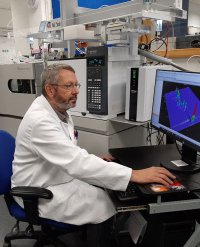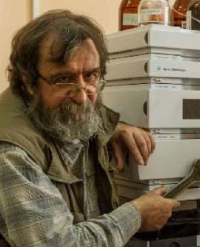"We originally expected to purchase a quadrupole instrument so buying a TOF was a little unexpected but definitely worth it as the data is far richer than what a quadrupole would have supplied. In the three years we have had the instrument running metabolomic matrixes the source has never been cleaned and the data is still superb and consistent. We love our Pegasus BT, it does a fab job of running my FAME samples including milk, yogurt, kefir, biltong and bacteria."

 LECO
Empowering Results
LECO
Empowering Results
Displaying items by tag: Metabolomics
"Our metabolomics research has utilised a LECO Pegasus 4D for over 15 years. Total downtime has probably been less than 20 days for the entire 15 years. When we do have a problem or even a question about using the instrument, LECO are very swift to respond, resolve the issue and offer support and assistance usually within a day of contacting them, and quite often on the same day. The source has never been cleaned or replaced, and we still have the same detector from the original installation. Multiple papers have been produced using data produced from our LECO and I can honestly say it’s been a great asset to our team at York University."

"In 2019 EPSRC funded our vision for a regional Centre of Excellence (CoE) in 2 dimensional gas chromatography and mass spectrometry. This Regional CoE, initially embracing the Universities of Bath, Portsmouth, Southampton, and Swansea, will significantly drive discovery, characterisation and quantification of new modalities, delivering a step change in capability for detection and identification of new species that cannot be separated and determined by 1D GC alone.
LECO’s Pegasus HRT 4D GC×GC-TOFMS and the benchtop BT4D GC×GC-TOFMS, both with extensive automated sample handling capability were delivered in late 2019 and early 2020. Installation of these state-of-the-art instruments was complicated by Covid-19 and lockdown 1.0. With such complex instrumentation, and application areas, effective training was key; here LECO took the initiative and provided both bespoke local and on-demand online training.
The level of service support and close collaborative relationship with LECO (applications team and account manager) has been first rate. Both systems can now be operated remotely, enabling high level users from across the South West region to access the instrumentation and allow many complex questions to be probed. Our work covers a vast array of application, e.g. petrochemical, environmental and metabolomics. The data sets are rich and complex, yet simplified by a user friendly software interface. Compared to 1D-GC, the 4D systems provide an astonishing number of additional analyte identifications, giving us deeper insight and understanding of the samples. Combining LECO’s high resolution mass spectrometry with comprehensive gas chromatography, multiple sample handling options such as SPME, Pyrolysis and TD along with full automation has created a world class laboratory of which we are all very proud."

"I have been using a GC-TOFMS Pegasus BT since January 2018 for Metabolomics projects. I have mainly analysed murine tissues extracts, and, I'm very happy about its robustness and high sensitivity."

"I use a LECO mass spectrometer for plant metabolomics ; it is an efficient machine with a very low detection limit and the Chromatof deconvolution algorithm allows to find hundreds of compounds in complex extracts."

"Our virtual metabolomics research center has six GC-MS instruments, and the LECO PEGASUS® 4D is the crown jewel of our science park. The results of GC-MS profiling performed using GC×GC technologies has madea strong impression on users and has seriously improved the quality of ourpublications. The fast-scanning capabilities of the TOF-analyzer effectively augment the dataobtained on the ordinary quadrupole, especially when working with the most complexmatrices which are most often the subject of metabolomics analysis. The reliability of the device is especially deserving of praise. The equipment can withstand a very demanding load with constant, round-the-clock operation."